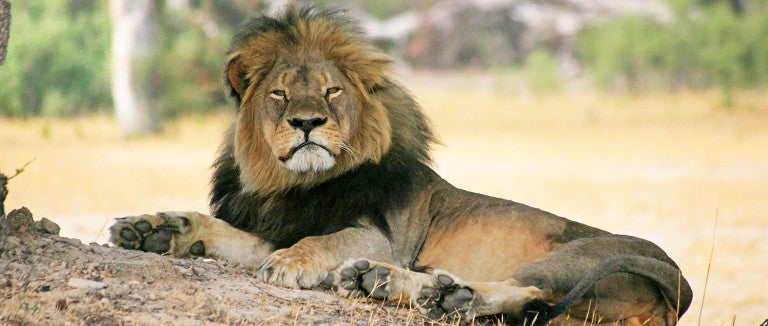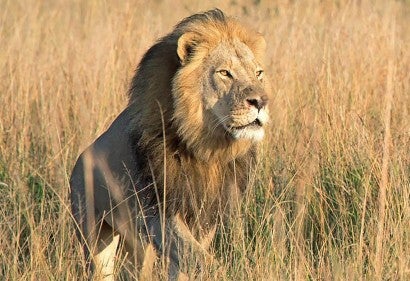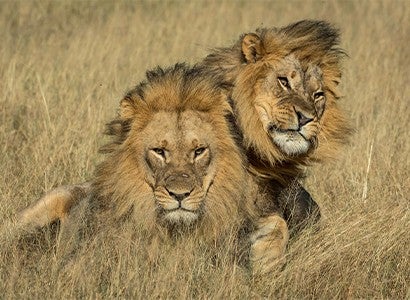It was the shot heard around the world. An American trophy hunter shot and severely injured Cecil with an arrow after he was lured outside Hwange National Park in Zimbabwe with elephant carcass bait. About 10 hours later, the hunting party tracked him down. A second arrow ended Cecil’s life. The African lion’s death was met with sweeping global outrage over his horrific killing—and trophy hunting more broadly.
Seven years later, the male lions currently living in and around Hwange National Park may be trophy hunters’ next targets. Today, Cecil’s 25-member pride is led by brothers Humba and Netsai and consists of Cecil’s mates, daughters and grandcubs. If trophy hunters target Humba and Netsai, the remaining pride members will be left vulnerable. But it’s not just Cecil’s pride threatened by the cascading damages of trophy hunting: Only around 20,000 mature lions are left in the wild. Although multiple countries have since banned the import of lion trophies, the United States—the No. 1 importer of hunting trophies in the world—isn’t one of them, leaving the remaining members of Cecil’s pride vulnerable to American trophy hunters.
Cecil’s legacy lives on not just in his offspring, but in the fight to protect other lions from the crosshairs of trophy hunters. Cecil is remembered for the heartbreaking events surrounding his death, but he also lived a vibrant life: He created an unusual alliance with another male lion, led a pride and became a favorite among the many tourists and locals who had the opportunity to watch him in the wild. Now, Humba and Netsai inspire a similar joy among visitors to the national park. With your help, their story can end differently from Cecil’s.
The death of one lion frequently results in the death of several others through starvation, infanticide or conflict with other lions or people.
Dr. Andrew Loveridge, Oxford University
 2013
2013
Cecil creates a coalition with another male lion, Jericho, to establish two prides in the eastern part of Hwange National Park. Researchers are surprised to see this alliance; Cecil and Jericho had previously fought each other.
 July 2015
July 2015
Cecil is lured out of the safety of Hwange National Park with elephant carcass bait and shot with an arrow by an American trophy hunter. When he is tracked down around 10 hours later, he is slowly dying. He is then killed.
Want more content like this?
This was written and produced by the team behind All Animals, our award-winning magazine. Each issue is packed with inspiring stories about how we are changing the world for animals together.
Learn MoreSubscribe


